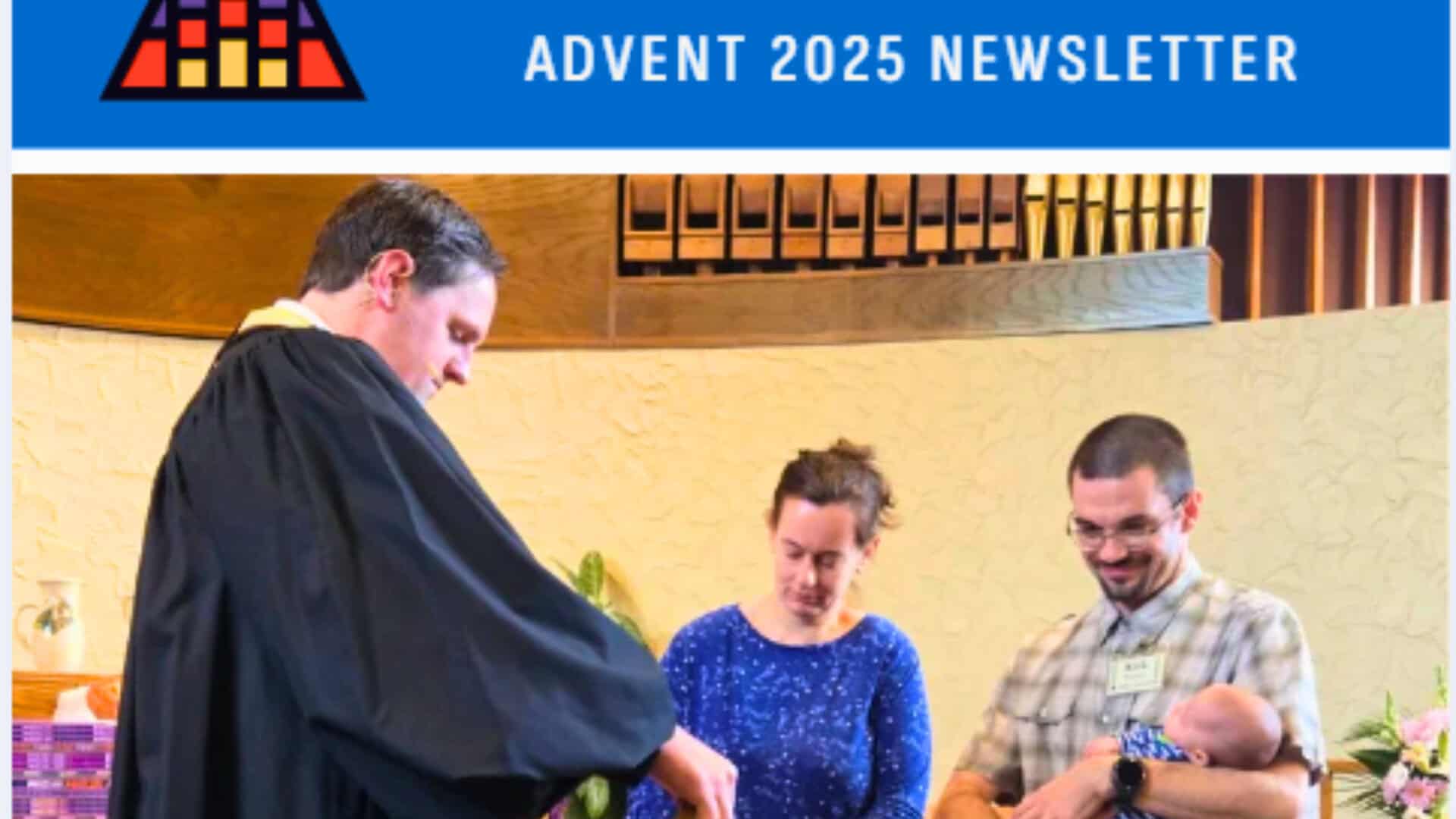Land Acknowledgement
Honoring the important stories and lived experiences of our members and neighbors
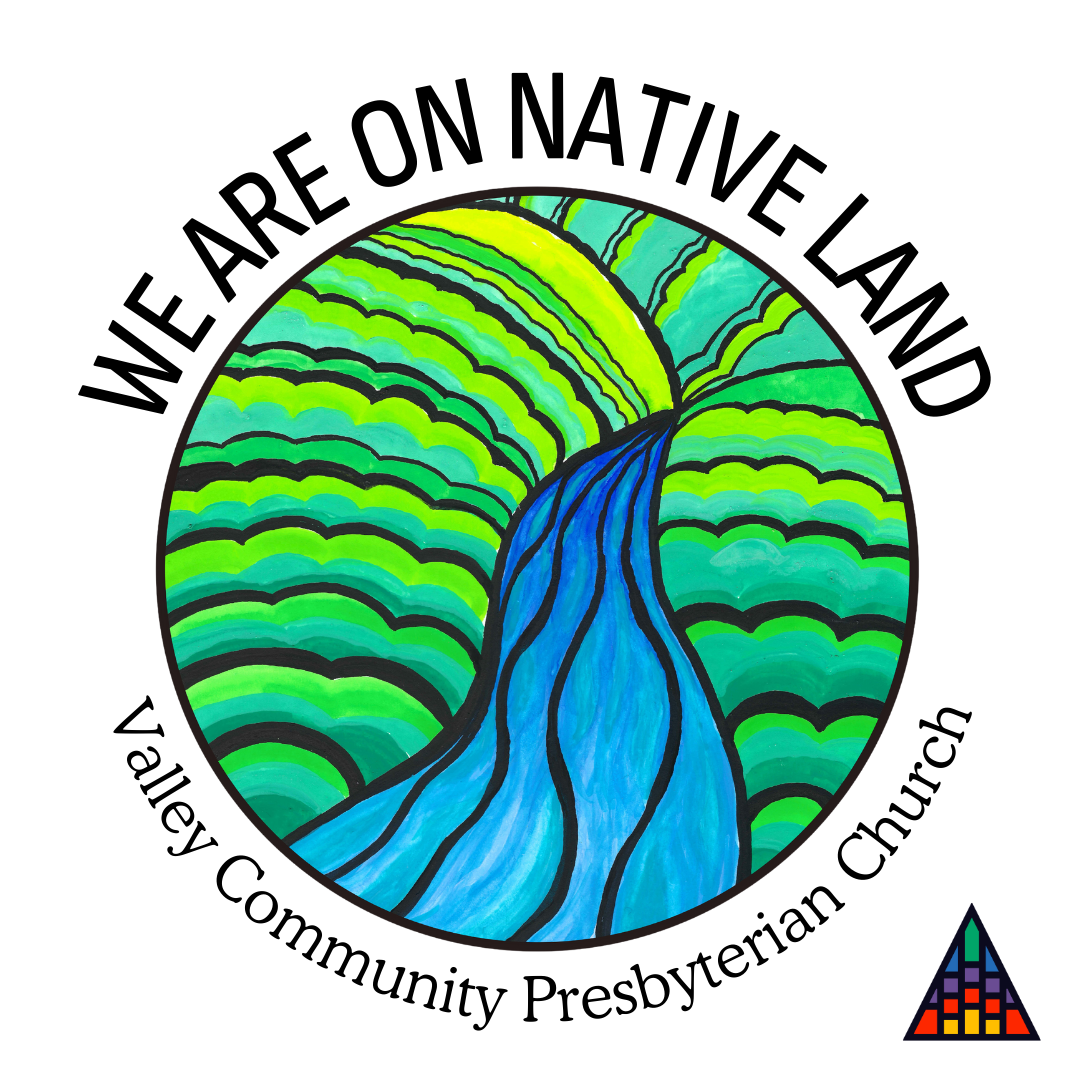
VCPC Land Acknowledgement Logo
We are thrilled to present the VCPC Land Acknowledgement Logo designed by artist Wóokiye wiŋ!
Currently Wóokiye wiŋ is a teacher and free-lance artist making jewelry, handcrafted dyes and pigments, illustrating books and Dakota language curriculum. Her current hide painted earrings are featured at Indigenous First gallery in Duluth, MN. She is a 2023 poetry contest winner for Public Art Saint Paul Sidewalk Poetry. She uses both her Dakota and Ojibway background to influence her designs in her art. Much of her young life was spent on her mother’s reservation, Fond du Lac Reservation in northern Minnesota, before her family moved to her father's Reservation at Upper Sioux Community in southwest Minnesota.
Wóokiye wiŋ lives in Saint Paul with her husband and children. Both her parents are artists, and she continues the artist tradition of her family. You may find her work online at www.wookiyewin.com. You may purchase original art from instagram @wookiye_win. Her books are sold at www.dakhota.org
Oral History Project
Honoring Ȟaȟa Wakpadaŋ
In the Dakota language, Ȟaȟa Wakpadaŋ is the name for Bassett Creek.
American Indian people have lived, worked, and played in areas surrounding the creek for thousands of years.
In 2021, Valley Community Presbyterian Church (VCPC) received a grant to conduct oral history interviews with American Indians who are connected to the creek’s watershed. The interviews explored how Native people experience the area as part of their historic and contemporary cultures.
VCPC developed the project in partnership with cultural advisors, Hennepin History Museum, and Dr. Kasey Keeler, a scholar of American Indian history from the University of Wisconsin—Madison.
Watch the Oral History Project
Ȟaȟa Wakpadaŋ Community Celebration: Learn more about our work on the oral history project and why it matters.
In the News: Rethinking History
CCX Media covers Valley Community Presbyterian Church's Land Acknowledgement event and the Ȟaȟa Wakpadaŋ Oral History Project.
New Podast Series!
We are excited to announce a new development in the Ȟaȟa Wakpadaŋ / Bassett Creek Oral History Project! In fall 2023, Hennepin History Museum (HHM) developed a podcast series dedicated to the 15 Ȟaȟa Wakpadaŋ interviews. For the first episode, please enjoy this conversation where Dr. Kasey Keeler gives an overview of the project.
Some examples of the interviews include Diane Wilson, renowned Dakota author and educator, and Bradley Blackhawk, who grew up in Crystal and canoed on Ȟaȟa Wakpadaŋ in the 1970s. As the episodes roll out, you can access them on Spotify or wherever you get your podcasts.
We are so grateful to Hennepin History Museum for committing to this podcast project. Our hope is that this format will make the interviews more accessible to listeners, both in Minnesota and around the country and the world!
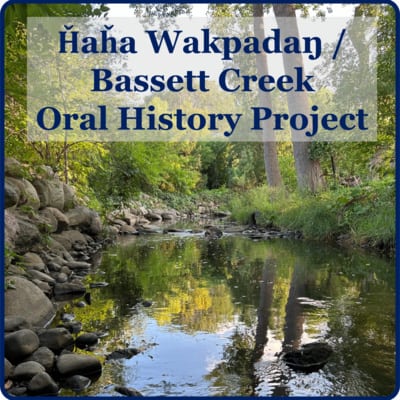
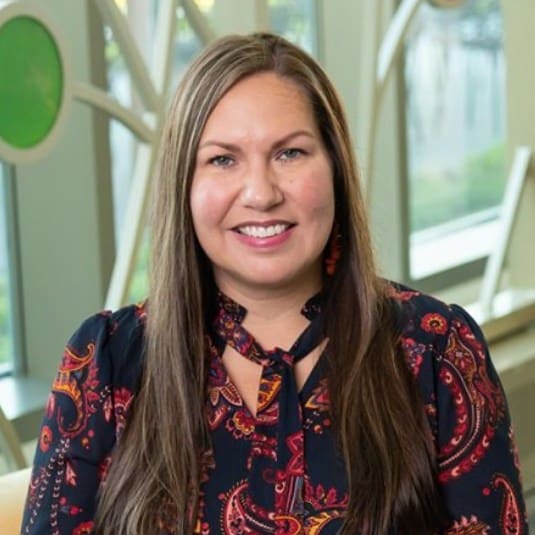
How to Pronounce Ȟaȟa Wakpadaŋ
The video was produced by Tiana LaPointe with project management by Crystal Boyd. It represents one of several ways that the VCPC Land Acknowledgement Task Force is moving beyond its land acknowledgement statement.
Upcoming Land Acknowledgement Events
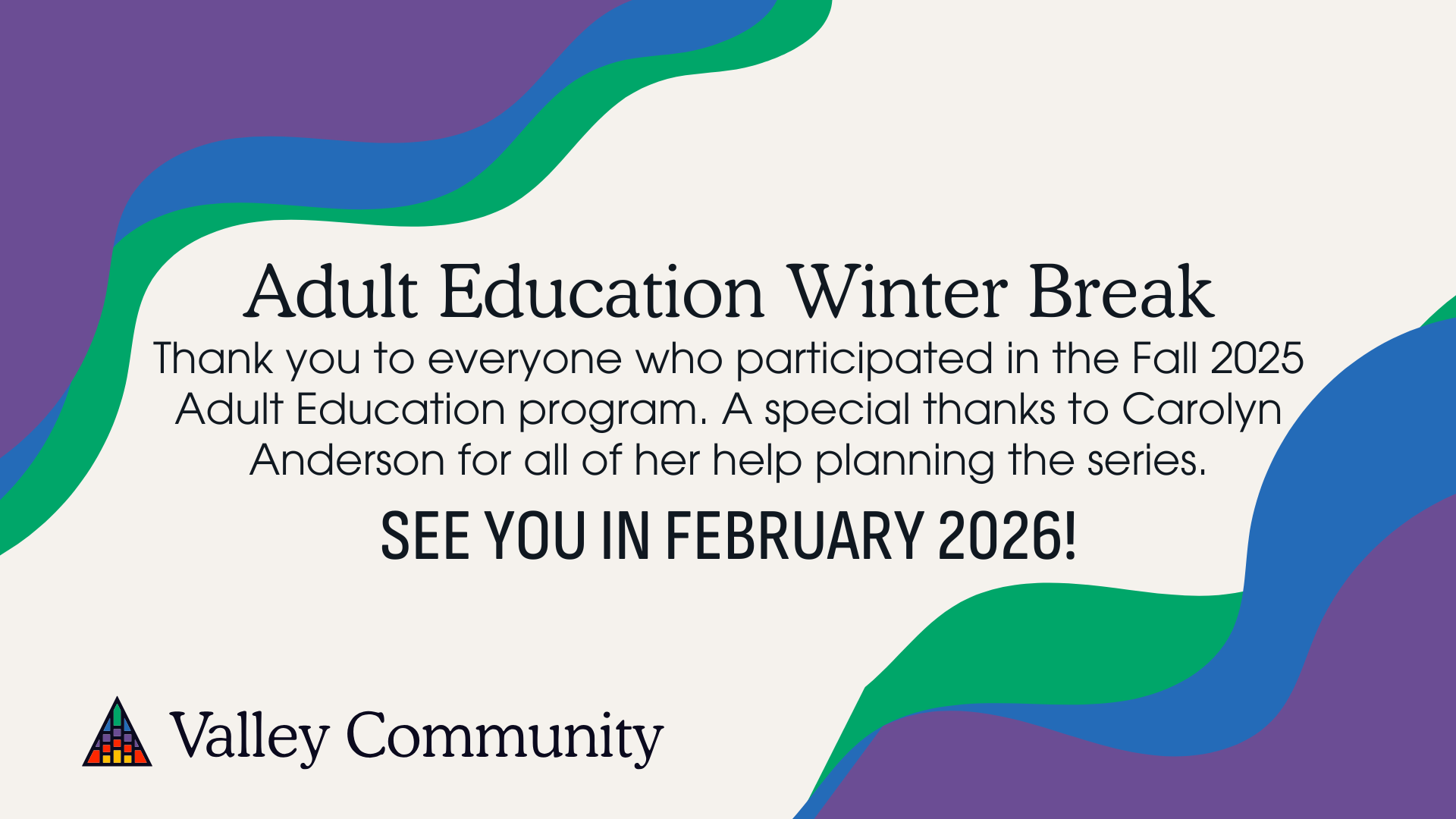
Adult Education
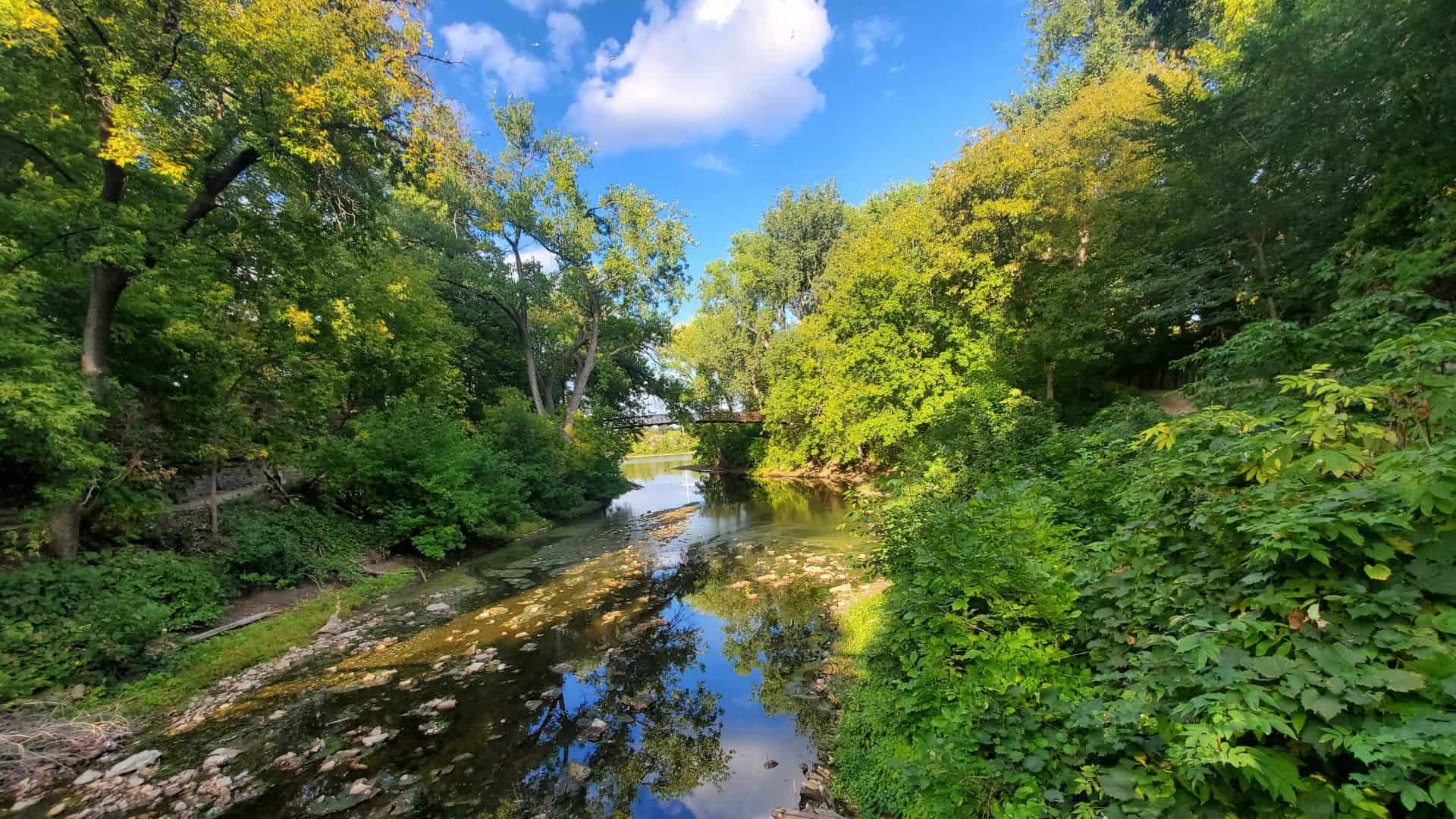
Ȟaȟa Wakpadaŋ / Bassett Creek Oral History Project Podcast

Blue Thumb Native Plant Sale

Third Annual Ȟaȟá Wakpádaŋ Water Blessing
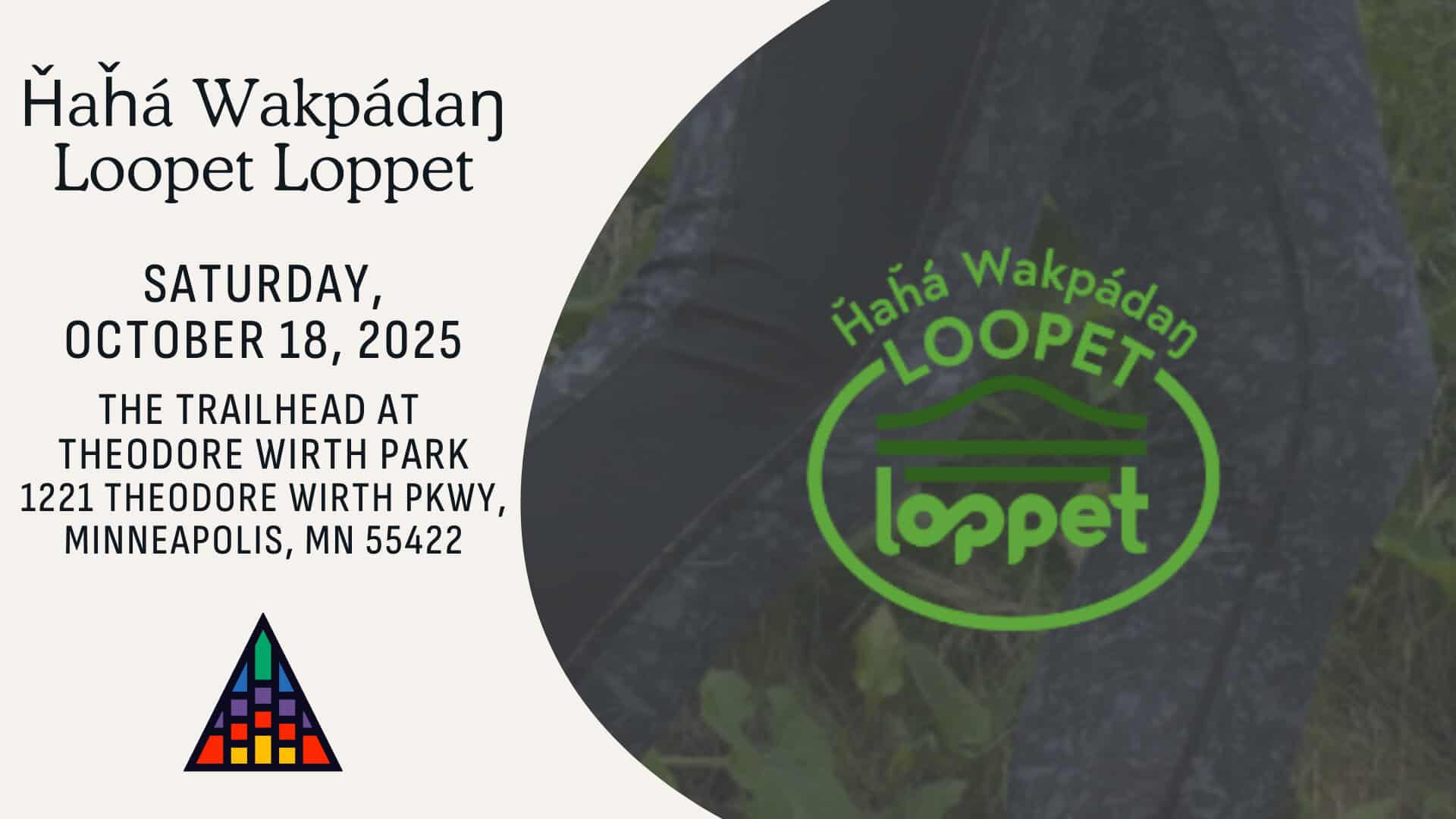
Ȟaȟá Wakpádaŋ Loopet Loppet
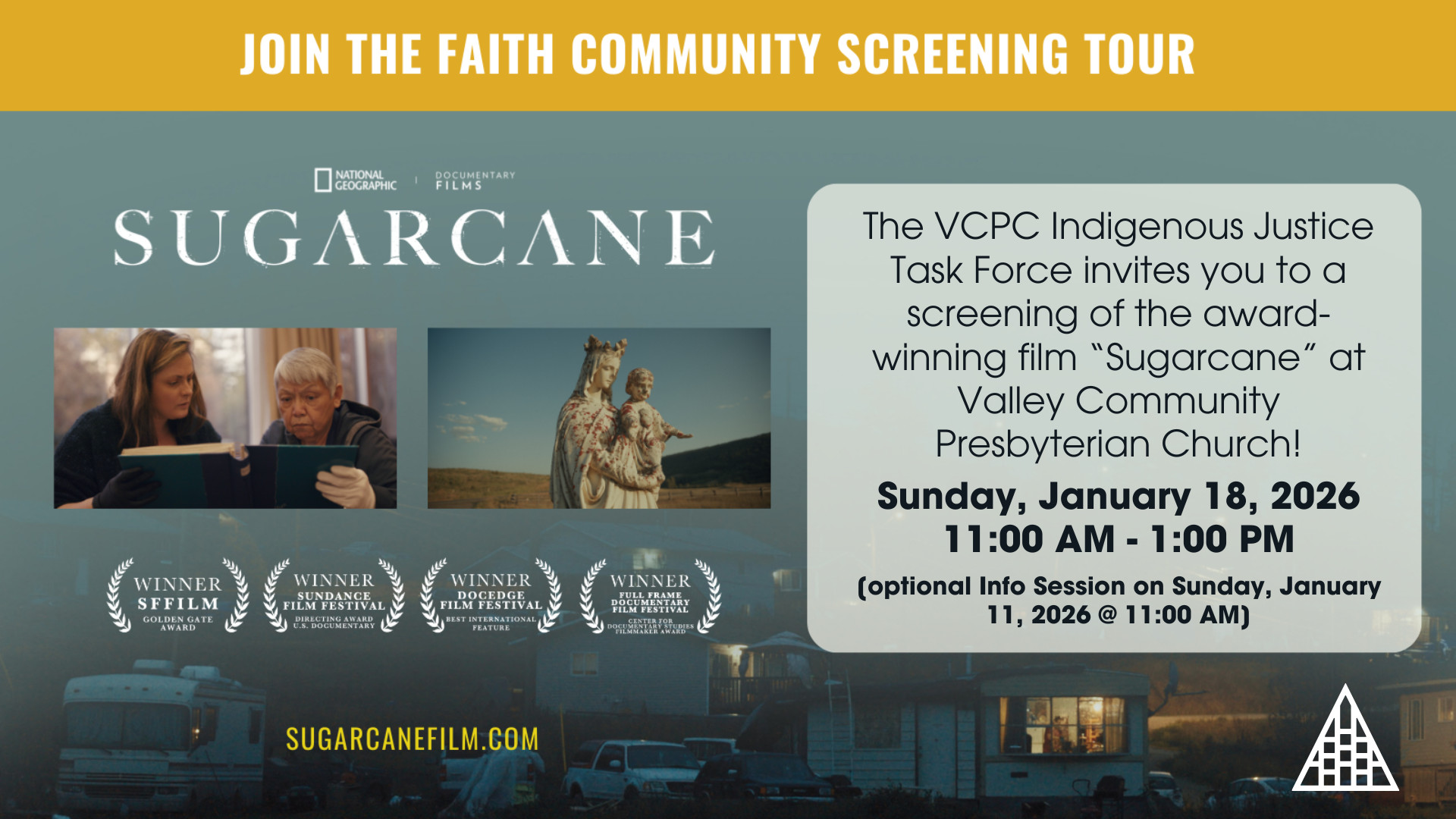
Screening of the award-winning film “Sugarcane”
Full Statement
Opening hearts, opening minds, and opening lives to God
As a faith congregation , Valley Community Presbyterian Church (VCPC) seeks to honor the important stories and lived experiences of its members and neighbors.
VCPC sits on the ancestral and contemporary land of the Dakota people, for whom the land holds historical, spiritual, political, and cultural significance.
We acknowledge the ongoing injustices that we have committed against the Dakota people and pledge to interrupt this legacy. We will educate ourselves about Indigenous history and recognize, support, and advocate for our Native neighbors.
